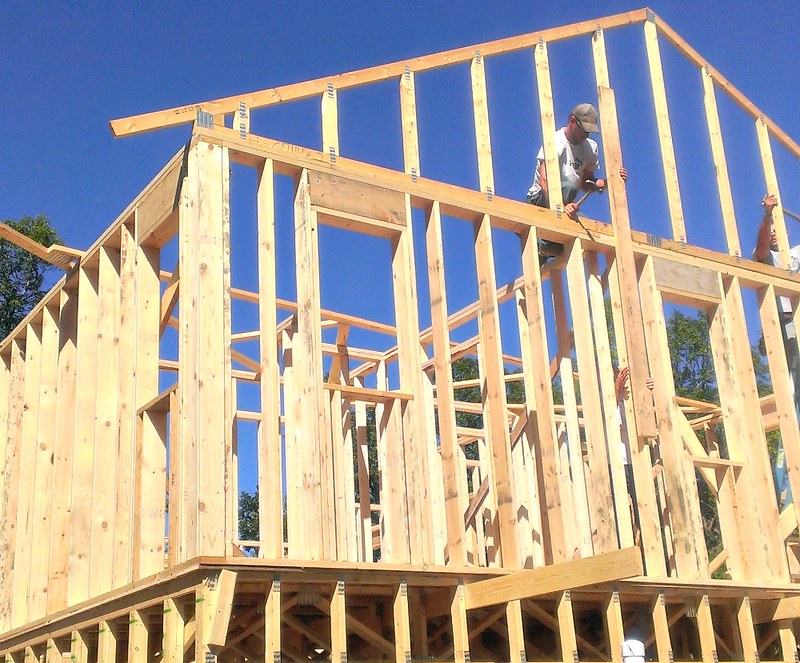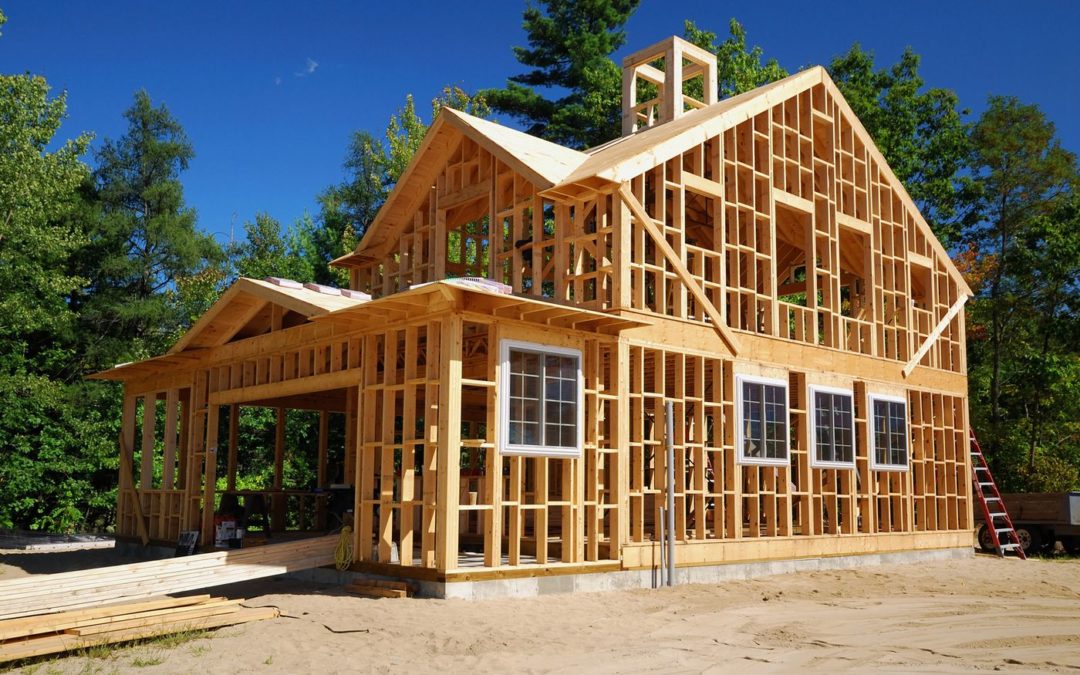How long does it take to build a house? This is a question that gets asked in real estate circles quite often. The answer can vary depending on several factors, like who is building the home, what type of construction it is, and where will the home be built to name a few.
According to the most recent data available from the U.S. Census Bureau, the average time to complete construction on a new home is 7.7 months. When planning your own home construction, you’ll want an accurate timeline to help you plan for things.
You might be renting a home or apartment while your new construction is taking place. Timing your new home’s completion to your lease expiring can be difficult. You’ll need to schedule movers in advance to get the best rate, particularly if you are moving from out of state. There are so many moving parts to consider that it can be overwhelming.
Let’s take a closer look at the factors that affect the timeline of your new home’s construction and what you can do to keep things moving.
Who Is Building Your Home?

Image via Flickr by HomeSpot HQ
Houses built for sale as part of a community development take the least amount of time. On average, they are completed in 5.9 months from the time of permitting to closing. If you’re considering hiring a contractor to build your home, they average around 8.4 months from start to finish. Houses built by owners take the longest time, coming in around 11.4 months.
The biggest reason for these differences can be traced to experience with the process. A community developer has the plans ready to go to permitting and likely has received some kind of preapproval for these plans so the process of permitting is streamlined.
A community developer has a large number of homes they plan on building. This allows them to hire their subcontractors in advance to handle the work as it comes. The concrete slab company finishes one house and moves to the next. The same goes for the plumber, the framer, the electrician, the drywall company, and on down the line. They all work faster too because there are fewer variations between floor plans and options.
Hiring a contractor will take a little longer because the contractor must review your plans and find the subcontractors to handle the job. They will have the contacts, but these subcontractors have other jobs they will have to work around. Often this creates delays. You can’t bring in the electricians until the framing is complete, but if the framer your contractor works with is working on another job first, it holds everything up.
This has a domino effect because your contractor has created their own timeline for each subcontractor. When one subcontractor is delayed, the others have to rework their schedules. These other subcontractors have other commitments, so rescheduling gets complicated quickly. This causes more delays.
Building by owners is the longest timeframe because you are essentially your own contractor. Most people don’t have relationships with subcontractors, so you’ll be bidding out the contracts and have very little idea about quality and reliability.
The other side of this relationship is that you are a one-time customer to a subcontractor. They have no opportunity for repeat business with you, so when they are faced with the decision to go work on your house or go work on another contractor’s project, they will choose the contractor every time. The contractors feed them regular business, so they want to keep them happy. Their future depends on it.
Typical Construction Timeline
We’ve broken out the average timeframe it takes to complete specific portions of your new home’s construction. There are factors like weather and getting portions inspected that can impact these times, but you’ll have a good idea of what to expect. We are also going on the assumption that you already have plans, permitting, and property secured.
Week 1: Breaking Ground
The shovel is out, the ribbon is cut, and off you go. What actually happens is the contractor will map out the layout. They will level the property for proper drainage and then set the footings for your home. The footings are sunk beneath the ground and support the slab your home will be built on.
Weeks 2-3: Building the Foundation
Whether it’s a concrete slab, a full basement, or something in between, it will take about a week or two, including an inspection. Some constructions include concrete walls, which can bleed into future weeks that have been allotted to framing.
Weeks 4-5: Framing
This is when the skeleton of your home is constructed. It can be concrete, wood, or both. It will include the roof rafters and interior walls and floors.
Weeks 6-7: Plumbing, Wiring, and Roofing
This is where things can get bogged down because multiple contractors will be working at the same time. If one or more experience a delay, this can bleed into future weeks.
Weeks 8-9: Drywall, Ceiling, and Insulation
You’re now getting to the end of the rough stuff and into finish work. Still, you have multiple contractors working, so delays can occur.
Weeks 10-11: Painting and Flooring
Usually, painting is done next before any final flooring materials like carpet and tile are laid. Cabinets, sinks, and countertops are all started during this stage.
Weeks 12-13: Exterior
Any brick, stucco, stone, or aluminum siding facade will go up now. Windows are installed. Your project will begin to look like your home.
Weeks 14-15: Fixtures and Finishes
Your house is a beehive of contractors during this stage. Your appliances, sinks, showers, tubs, and light fixtures are all being installed. After these are completed, the flooring will be installed.
Week 16: Driveways, Walkways, and Patios
Time to pour the concrete driveway, walkway, and steps.
Week 17: Landscaping
Your lawn, trees, and shrubs are all installed.
Week 18-19: Inspection
Your home will receive a final inspection approval for the dwelling. You’ll be given the opportunity to walk through and approve everything at this time.
Week 20: Closing
Assuming there were no serious issues during the final inspection and walkthrough, you are ready to close with the bank. it’s time to get your keys, call the movers, and settle into your dream home.
Ready to Build Your Dream Home?
At Steiner Homes, we pride ourselves on a streamlined transparent building process. Our professional and friendly staff will walk you through everything from site selection, floor plans, interior design, and closing.
We invite you to view our home plans and communities online at any time.

